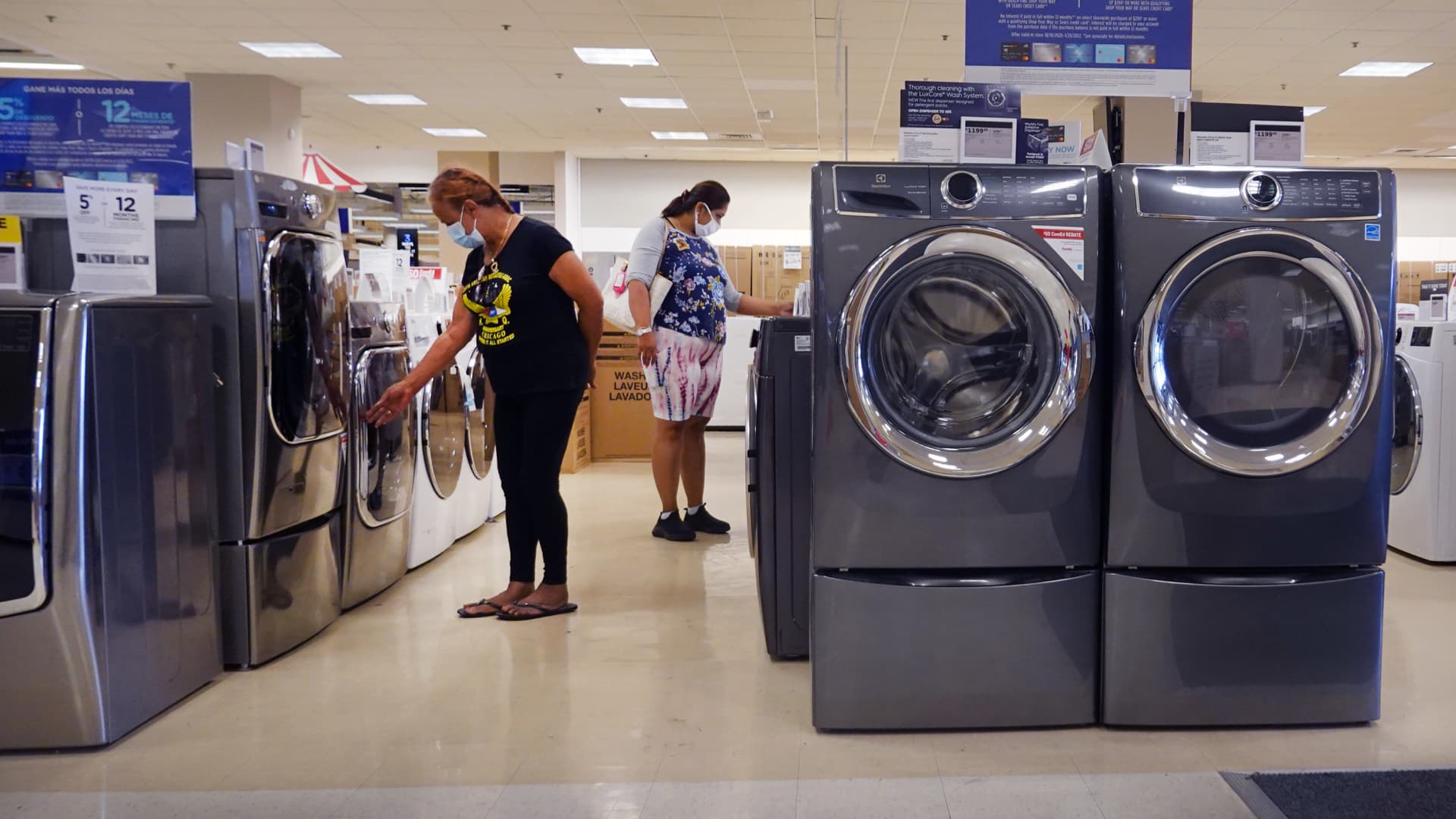
Companies have to set sustainability goals even if they don’t know how they’ll achieve them, the head of a white goods company told CNBC.
“We have to make commitments that we don’t know how we’re going to meet, we have to commit to investing in technology and innovation and set the bar so high that it may scare us, but we have to be brave and really attack it in a way that’ll make a difference,” said Hakan Bulgurlu, the CEO of Arcelik, a Turkish multinational manufacturer of household appliances.
Bulgurlu told the latest episode of CNBC’s “Sustainable Future” that the company sees its sustainability efforts and initiatives as a business opportunity.
When asked how achievable it was for Archelik to reach its net-zero emissions target throughout the value chain by 2050, Bulgurlu was clear.
“It’s not actually. I mean, a straight answer, it really is not. Laws of physics dictate that it’s not. But what we can do is we can reduce our emissions and impact drastically,” he said.
‘Purpose and profit’
Long-term business survival is possible only when a company does right by the environment, Bulgurlu said.
“Doing the right thing by the environment, which means trying to mitigate the impact of a changing climate, especially controlling emissions, decarbonizing, and trying to protect the ecosystem you operate in, became a priority for us because we simply saw it as an opportunity to also differentiate vis-a-vis our competitors,” he said.
“In the past, you could have separated the two, purpose and profit, but today, if you don’t have that purpose, you will lose the profit for sure. I really believe that this transformation is the only way for companies to survive the long term,” he added.
Arcelik, which has been listed on the Dow Jones Sustainability Indices for the past five years, was established in Turkey in 1955 and manufactured the country’s first washing machine and refrigerator.
Bulgurlu told CNBC that the production of such household appliances and their energy consumption causes a huge number of emissions, but he believes they can be sustainable.
When asked how Arcelik is addressing the declining lifespans of washing machines, he said: “This is an area which is not only confusing, but quite controversial … First of all, I would want to replace every washing machine out there, not because I want to sell new washing machines, but because newer washing machines consume far less energy and therefore emit far less carbon and consume far less water,” he said.
“So, I would almost argue that we need a shorter lifespan in the immediate future to reduce the amount of emissions caused by the washing machines that people use, but then the newer ones we are putting in the market should, of course, be durable and recyclable.”
Bulgurlu said the company had built its own recycling facilities to repurpose large amounts of plastic, steel and copper from old appliances, and they recover more than 90% of materials to use in new products or sell to downstream industries.
Personal turning point
Born and raised in Norway until he was five, Bulgurlu said he grew up in nature. His concern for the environment grew as he witnessed visible change, and an experience he had with his own children was a turning point.
“One particular moment I will never forget, I took my children to experience this beautiful beach … Maya Bay, and there, you know, what I remember as being completely pristine, clear water, coral, sea life everywhere, white sand beach … I took my kids and we were knee deep in plastic, knee-deep. Decaying corpses of birds,” he said.
“And my daughter, who was four at the time, looked up to me and said, “why?”, you know, “why?” And I couldn’t answer. And that was a real moment for me of like, this has to stop, you know, this really has to stop.”
To raise awareness of the climate crisis, Bulgurlu climbed Mount Everest in 2019.
“I really felt the importance to a) raise awareness as much as I can and devote my life to actually making change happen in terms of a more sustainable world. And some of the reasons are selfish, I have young children, I want them to have a childhood and a life, a quality of life that I did,” he said.
“For our children’s generation, and mine are young, it may be food security, it may be finding a roof over their heads. It may be a very different world, and I want to be able to look them in their eyes, you know, 10, 15 years later, and say I did absolutely everything I possibly could.”
Bulgurlu is part of the World Economic Forum’s Alliance of CEO Climate Leaders, a network of CEOs set up to support corporate climate action.




